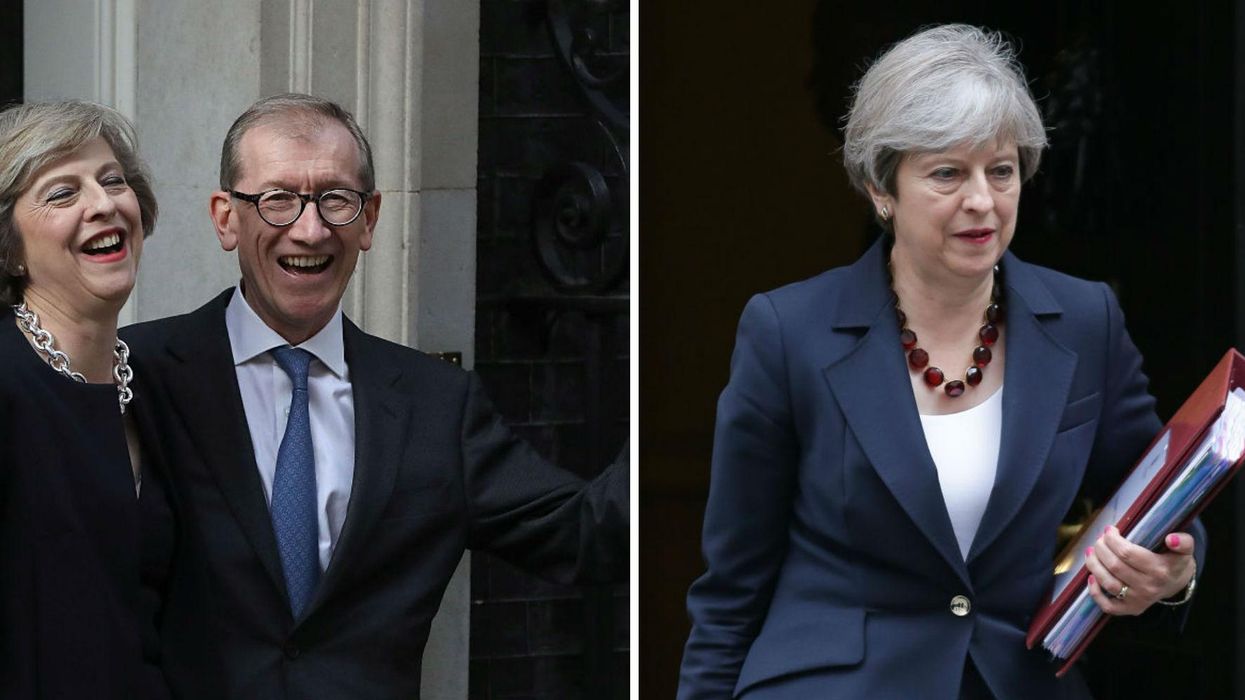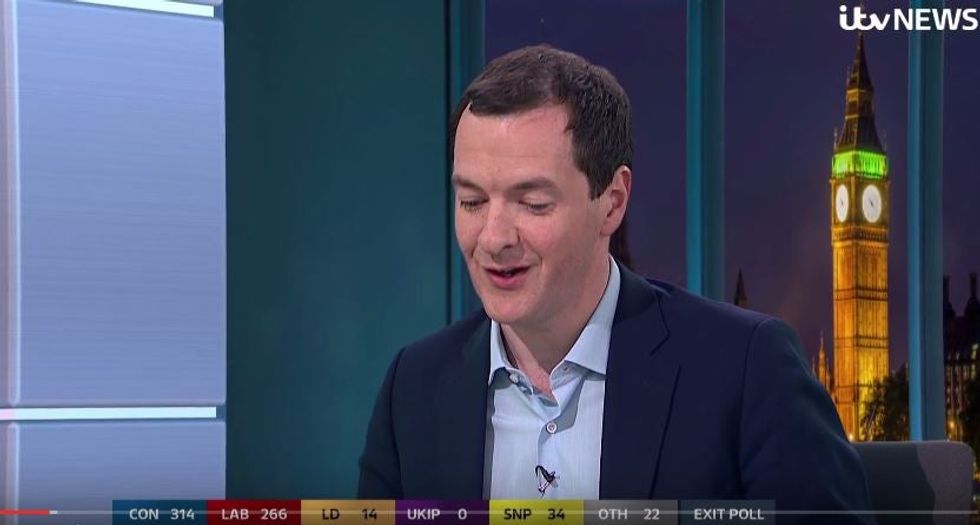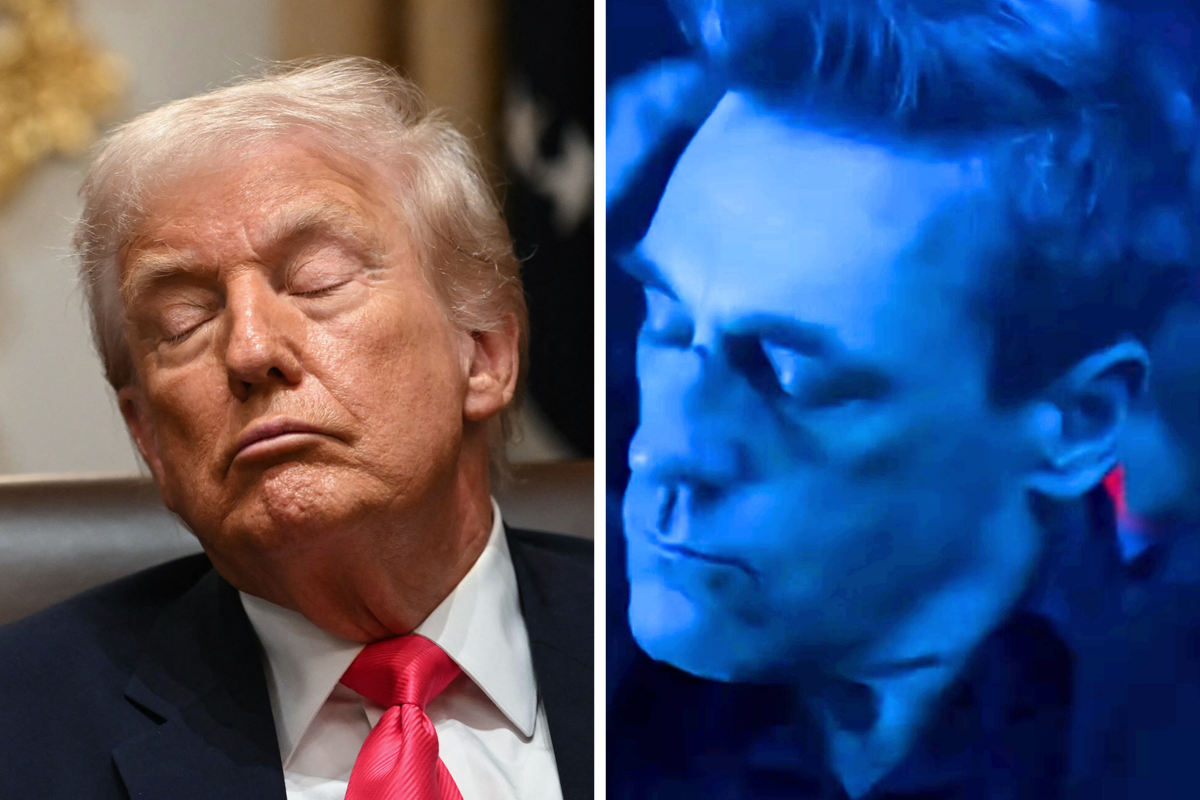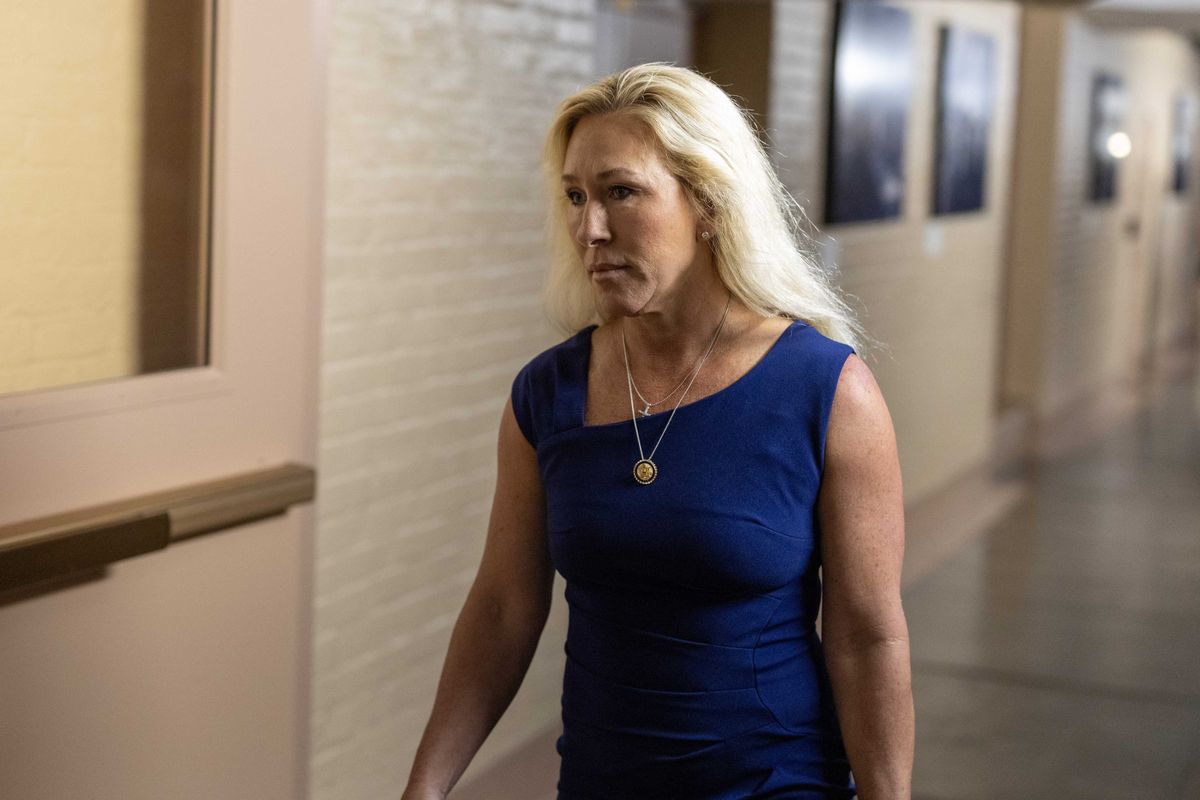News
Indy100 Staff
Jul 13, 2017

Picture:
left: Christopher Furlong/Getty Images, right: DANIEL LEAL-OLIVAS/AFP/Getty Images
On 18 April Theresa May threw away the first majority won by the Conservative Party in 23 years.
The joy of being in power, and without the help of the Liberal Democrats, was smothered after just 1 year, 11 months, and 11 days.
13 July marks the first year of her premiership, after she replaced David Cameron - the leader who'd won that majority.
When she first ascended, things were looking great.
How things have changed.
Ratings worse than the red and Jeremy Corbyn
August 2016: Ipsos Mori gave Theresa May a 35 per cent net satisfaction.
A poll by YouGov in the same month found she was Britain's most popular politicians.
June 2017: YouGov gives May a net unfavourability rate of - 34 per cent, even lower than Jeremy Corbyn before the general election.
In a ranking of who would make the best prime minister by YouGov, for the first time ever Jeremy Corbyn received a higher score than Theresa May.
Enemies within and without

July 2016: May took over the the premiership, and immediately sacked her rival George Osborne.
According to the Times, the new PM gave Osborne some 'elder sister' advice that if he wanted to be the prime minister in future he should get to know the membership better.
May also sorted her rival Boris Johnson, and sidelined her chancellor Philip Hammond.
June 2017: Osborne, now the editor of the daily Evening Standard, describes May as a 'dead woman walking' and struggles to hide in his glee.
In the weeks following her heavy election losses the Evening Standard rips into her leadership on an almost daily basis.
In the wake of the election Johnson and Hammond both refused to say how long she would last as prime minister.
Tory disunity
July 2016: May is the golden leader among her backbenchers and party members. Falling into line behind the new boss, Tory back benchers were delighted by her appeal to voters in Labour heartlands.
July 2017: Without a majority, May makes a deal with the Democratic Unionists that offends supporters of sexual equality, and costs the tax paper an extra billion pounds in public spending. Backbenchers reportedly search for another candidate to replace her, and May is only saved because they came up short.
Speaking with the Huffington Post, the political historian Anthony Selsdon called it the worst crisis for the Conservatives in a century.
The Tory Party is now more in trouble than at any point for 100 years since the immediate aftermath of the First World War.
The Tory Party is now more divided than it was over Suez, more divided than at any point [since] 1918.
I think it’s down to the fact the country was anyway in a difficult position because Brexit was going to go wrong,
I think she was in a ‘no-win’ situation over the General Election. If it hadn’t been called, she would be having a terribly difficult summer, people would be saying she’d blown it.
In an interview with the Sun published 12 July, May said she wanted to be prime minister for 'the next few years', in order to see through Brexit negotiations.
Why bother prime minister? It doesn't look like any fun.
Top 100
The Conversation (0)













Donald Trump explodes at 'obnoxious' reporter